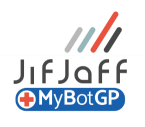The National Health Service (NHS) has long been a cornerstone of public health, tirelessly offering medical services to millions. However, recent data from the NHS suggests that clinicians in primary care are using a significant amount of time on administrative tasks that can be automated. It is critical to evaluate these practices to ensure that the healthcare workforce can focus on patient care and clinical duties, enhancing the efficiency and quality of the health services provided.
The Extent of the Problem
The data outlines that paperwork, data entry, normal blood reviews, referrals, scheduling appointments, and prescription management consume a staggering amount of clinicians’ time. While integral to a clinic’s operations, these tasks are not always direct contributors to patient health and care. Thus, the current situation underlines an urgent need for streamlining operational workflows, freeing up vital time for healthcare providers to focus on clinical activities and enhance patient interactions.
The Impact on Primary Care
The implication of such administrative burdens is manifold. It can lead to delayed appointments, less time for patient interaction, and increased wait times. This compromises the quality of care and affects the overall patient experience and satisfaction. In the long run, this administrative overload can lead to burnout amongst healthcare providers, further straining an already stretched system.
The Potential of Automation
Automation technologies, including Artificial Intelligence (AI) and Automation (RPA), have demonstrated substantial potential to alleviate such administrative burdens. Automating routine and repetitive tasks can assist in reducing the manual workload on healthcare staff, thereby allowing them to concentrate on more critical aspects of patient care.
Realising the Benefits
The integration of automation within primary care practices promises not only operational efficiency but also enhanced patient satisfaction and outcomes. Patients can experience reduced wait times and improved interactions with their healthcare providers. Unburdened by tedious administrative tasks, clinicians can dedicate more time to clinical activities, improving the overall quality of healthcare delivery. Moreover, reducing manual errors in tasks like prescription management and data entry can enhance patient safety and care quality.
A Future-Forward Approach
To harness the full potential of automation, it is imperative for primary care practices to adopt a future-forward approach. This involves a comprehensive assessment of current workflows, identification of areas that can benefit from automation, and investment in the right technologies. Training and development programs for staff are equally crucial to ensure smooth transitions and adoption of new systems.
Moreover, policymakers and healthcare leaders should advocate for strategic investments in technology and innovations that facilitate the automation of administrative tasks within primary care. This would necessitate a holistic approach, encompassing the alignment of policies, resources, and stakeholder interests, to actualise the seamless integration of automation within the healthcare ecosystem.
The latest NHS data paints a vivid picture of the substantial amount of time that primary care clinicians spend on administrative tasks, highlighting a glaring inefficiency within the system. Automating such tasks is not just a feasible solution; it is an essential step towards optimising healthcare delivery, improving patient experiences, and ensuring the well-being of healthcare providers. It’s time to leverage technology and innovations to uphold the true essence of healthcare—caring for human lives without being entangled in the web of administrative chores.
This piece thus serves as a call to action for healthcare practitioners, leaders, and policymakers to recognise the critical need for automation in primary care and to collaborate in making this vision a reality. Doing so can ensure a more sustainable, efficient, and patient-centred healthcare system.
JifJaff offers a fully managed and scalable solution for NHS Primary Care. Our team of experts handle all processes from implementation to maintenance, allowing you to focus on what matters most – your business! Our solution grows with you from practice, or large ICS with complex needs, we adapt to meet your requirements. With our comprehensive solutions, you can save time, reduce costs, and streamline your operations knowing you are fully supported.
